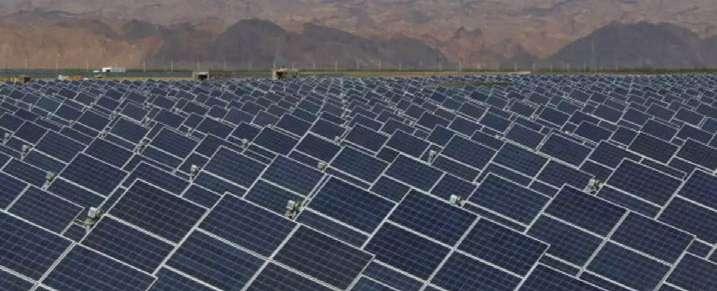
5 minute read
EV Updates
Pune’s goEgoNetwork EV Charging
Startup Secures $2 Million Seed Funding
Advertisement
Pune’s goEgoNetwork is electric vehicles (EV) Charging Startup Secures $2 Million Seed Funding.
Recently the two-year-old startup has secured $2 million in seed funding to expand its existing electric charging network. Rishi Bagla of the Bagla Group in association with Olivier Guillaumond, Head of Global Innovation Labs and Fintech at ING Bank in the Netherlands had raised the seed round. Speaking of the investment, Bagla said, “EVs are part of the larger disruption in energy and transportation, which are witnessing a considerable shift towards green technology solutions.”
“In the EV sector, more focus has begun on installing charging infrastructure. This will be the single most important factor, which drives the adoption of electric vehicles,” he added.
Further, the seed funding arrangement was initiated by Jay Shah of Sharad Shah and Company in Pune.
The goEgoNetwork charging experience was originally conceived and initiated by the founders, Sayantan Chakraborti, Pravin Kumar, and Dheeman Kadam while working for major investment banks in the Netherlands.
The company was incorporated in 2019 and today, the company has its corporate office in Pune, its lab in the Netherlands, and has already set up a state-of-the-art manufacturing facility at AURIC city in Aurangabad to cater to the fast-growing demand for robust EV chargers across the country. goEgoNetwork Co-Founder and CEO Sayantan Chakraborti said, “The recent investment further reinforces our commitment and dedication towards being India’s only smart electric charger network. We aim to compel the market to switch towards EVs while creating more job opportunities with the best professionals in this greenfield industry.”
Following up on the manufacturing facility, goEgoNetwork has plans to open its own experience centers in the coming few months.
This year has seen aggressive investments in the EV sector despite the Covid-19 pandemic. As the Indian EV sector recorded investments of approx. Rs. 25,000 crore during the first seven months of this year. Firms like C4V, Lohum, Ruchira Green Earth, Omega Seiki, Ashok Leyland, Mahindra & Mahindra, Hyundai, Ather Energy, Hero Electric, and so on have invested in the EV and infrastructure sector.
Tata Motors Launches Tigor EV Sedan
Starting at Rs 11.99 L
Auto major Tata Motors has launched a new car — the Tigor EV, which comes with an ARAI-certified range of 306 kms (under standard testing conditions) and is available in 3 variants, i.e. XE (for Rs 11.99 lakhs), XM (for Rs 12.49 lakhs), and XZ+ (for 12.99 Lakhs; Dual Tone option – for Rs 13.14 lakhs).
The Tigor EV deliveries will commence for the personal segment today. Following the footstep of its ICE (Internal Combustion Engine) sibling, the Tigor EV has also been lauded by GNCAP with a 4 star rating for adult (12.00 points out of 17.00) and child (37.24 points out of 49.00) occupant protection, says Tata.
Leading the current electric vehicle personal segment market with a 70% market share, Tata Motors is assertive that the all-new Tigor EV will democratize the electric mobility offerings in India. The Tigor EV delivers a peak power output of 55 kW and a peak torque of 170 Nm and is powered by a 26-kWh liquid-cooled, high energy density battery pack and an IP 67 rated battery pack and motor to make it weather and worry-proof.
The Impact-Resistant Battery Pack casing of Tigor EV complies with AIS – 048 standard for nail penetration at cell Level. Based on a proven platform with Rear Crash suited structure, the car is compatible with globally acceptable CCS2 charging protocol and can be fast-charged as well as slow-charged from any 15 A plug point, added Tata.
Earlier this month, in a move to enhance the country’s electric mobility, Tata Motors delivered 35 Starbus electric buses as a part of a larger order of 340 electric buses to BEST, a civic transport and electricity provider public body based in Mumbai, Maharashtra.

India to Increase Incentives for EV and
H2-powered Car Makers

India has revised its proposed $8 billion scheme for the auto sector which will now focus on providing incentives to companies to build electric and hydrogen fuel-powered vehicles, according to recent media reports.
This is a significant shift from the government’s original plan to incentivise auto and auto part makers to build mainly gasoline vehicles and their components for domestic sale and export, with some added benefit for electric vehicles (EVs).
The Ministry of Heavy Industries revealed in August that India registered a total of 5,17,322 electric vehicles (EVs) over three years under the FAME scheme. The country’s e-mobility sector recorded a total of Rs. 25,045.31 crores of investment during January-July 2021, collectively from E2Ws, E4Ws, EV component makers, electric commercial vehicles, and last-mile delivery companies.
The move to clean technologies comes as Tesla Inc is gearing up to enter India and is lobbying for lower import duties on electric cars. While the government is considering the request, it wants some economic benefit in return which could include a commitment from Tesla to produce cars locally.
India is reported to be planning to give incentives to automakers for building EVs and hydrogen fuel cell cars only under the new proposal. The government apparently does not want to spend money on promoting old technologies.
Auto parts makers, however, will get incentives to produce components for clean cars as well as for investing in safety-related parts and other advanced technologies like sensors and radars used in connected cars, automatic transmission, cruise control and other electronics, sources said.
The idea is to promote the development of technology that is currently not manufactured in India but is imported either because regulation demands it or customers want those features in their cars, according to sources.
The sources said the original incentive outlay of about $8 billion may also be cut and that the production-linked scheme, which would apply on domestic sale and exports, could be finalised as soon as September-end.
Domestic automaker Tata Motors is currently the largest seller of electric cars in India with rival Mahindra & Mahindra as well as motor-bike companies TVS Motor and Hero MotoCorp firming up their EV plans.
However, India’s biggest carmaker, Maruti Suzuki, has no near-term plan to launch EVs as it does not see volumes or affordability for consumers, its chairman said last month.
The incentive scheme is part of India’s broader $27 billion programme to attract global manufacturers so it can boost domestic production and exports.


















